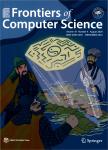UCat: heterogeneous memory management for unikernels
作者机构:National Engineering Research Center for Big Data Technology and SystemServices Computing Technology and System Lab/Cluster and Grid Computing LabSchool of Computing Science and TechnologyHuazhong University of Science and TechnologyWuhan 430074China
出 版 物:《Frontiers of Computer Science》 (中国计算机科学前沿(英文版))
年 卷 期:2023年第17卷第1期
页 面:51-61页
核心收录:
学科分类:08[工学] 081201[工学-计算机系统结构] 0812[工学-计算机科学与技术(可授工学、理学学位)]
基 金:supported by the National Natural Science Foundation of China(Grant Nos.62072198 61732010 61825202 and 62032008)
主 题:unikernel virtualization non-volatile memory heterogeneous memory large page slab allocation
摘 要:Unikernels provide an efficient and lightweight way to deploy cloud computing services in application-specialized and single-address-space virtual machines (VMs). They can efficiently deploy hundreds of unikernel-based VMs in a single physical server. In such a cloud computing platform, main memory is the primary bottleneck resource for high-density application deployment. Recently, non-volatile memory (NVM) technologies has become increasingly popular in cloud data centers because they can offer extremely large memory capacity at a low expense. However, there still remain many challenges to utilize NVMs for unikernel-based VMs, such as the difficulty of heterogeneous memory allocation and high performance overhead of address *** this paper, we present UCat, a heterogeneous memory management mechanism that support multi-grained memory allocation for unikernels. We propose front-end/back-end cooperative address space mapping to expose the host memory heterogeneity to unikernels. UCat exploits large pages to reduce the cost of two-layer address translation in virtualization environments, and leverages slab allocation to reduce memory waste due to internal memory fragmentation. We implement UCat based on a popular unikernel--OSv and conduct extensive experiments to evaluate its efficiency. Experimental results show that UCat can reduce the memory consumption of unikernels by 50% and TLB miss rate by 41%, and improve the throughput of real-world benchmarks such as memslap and YCSB by up to 18.5% and 14.8%, respectively.



